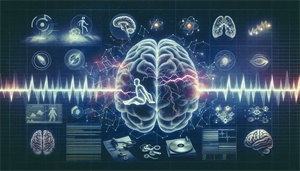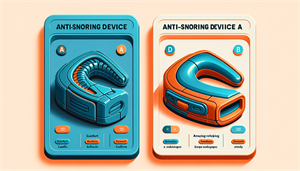
Sleep Apnea and Seizures
Sleep, an essential part of our daily routine, plays a critical role in our overall well-being. But what happens when our sleep is affected by disorders like sleep apnea, potentially leading to more severe conditions such as seizures? The interplay between sleep apnea and seizures is a complex one, and understanding it is vital.
Key Takeaways
Obstructive sleep apnea (OSA) is linked to increased frequency of seizures, with effective treatment of sleep apnea potentially helping to reduce seizure occurrence. Various types of seizures, such as nocturnal, frontal lobe, and complex partial seizures, can disrupt normal sleep patterns and are sometimes associated with sleep disorders. Effective diagnosis of sleep apnea and seizures often involves sleep studies, EEG testing, and thorough medical evaluations, with treatment options including CPAP therapy, anti-seizure medication, and lifestyle changes.
The Connection Between Sleep Apnea and Seizures
There’s a notable connection between sleep apnea, especially obstructive sleep apnea (OSA), and an increased frequency of seizures. This sleep disorder is characterized by repeated breathing disruptions during sleep, which can exacerbate or even trigger seizures. The intriguing aspect of this relationship is how treating sleep apnea could potentially help reduce the risk of seizures. Conversely, seizures have the potential to interfere with regular sleep patterns. This cycle between sleep apnea and seizures creates a complex interplay that can lead to misdiagnosis.
Obstructive Sleep Apnea
Obstructive sleep apnea (OSA), a prevalent sleep disorder, impacts nearly 1 billion adults aged 30–69 years globally, including 39 million individuals in the U.S alone. Untreated sleep apnea, specifically obstructive sleep apnea, is characterized by: repeated breathing interruptions during sleep increased brain activity raised neuronal excitability potentially triggering seizures. A case that illustrates this relationship featured: a 61-year-old male diagnosed with OSA a history of epileptic seizure-like events these seizure-like events were later determined to be non-epileptic spells triggered by apnea-related arousals.
Sleep Deprivation and Seizures
As sleep deprivation heightens neuronal excitability, which can cause abnormal neuron firing in the brain, it is acknowledged as a trigger for seizures. Difficulty falling asleep can contribute to sleep deprivation, thus elevating the risk of seizures. Furthermore, nocturnal seizures can disrupt sleep, contributing to poor sleep quality. These disruptions can make seizures more likely to occur, creating a challenging cycle for individuals with epilepsy. Thus, improving sleep quality, particularly slow wave sleep, plays a crucial role in managing seizures and enhancing the life quality of epilepsy patients.
Types of Seizures Associated with Sleep Disorders
Sleep disorders can be associated with various types of seizure disorders, including sleep related seizures, nocturnal seizures, frontal lobe seizures, and complex partial seizures. These seizures not only disrupt normal sleep patterns but can also be difficult to identify due to their occurrence during sleep. Nocturnal Seizures Manifesting during sleep, nocturnal seizures can often be a preliminary sign of epilepsy. These seizures can increase the risk of mortality from epilepsy and make individuals more susceptible to injuries. Thus, seeking immediate medical help is essential to control nighttime seizures and reduce the risk of epilepsy complications. These seizures often disrupt sleep patte


